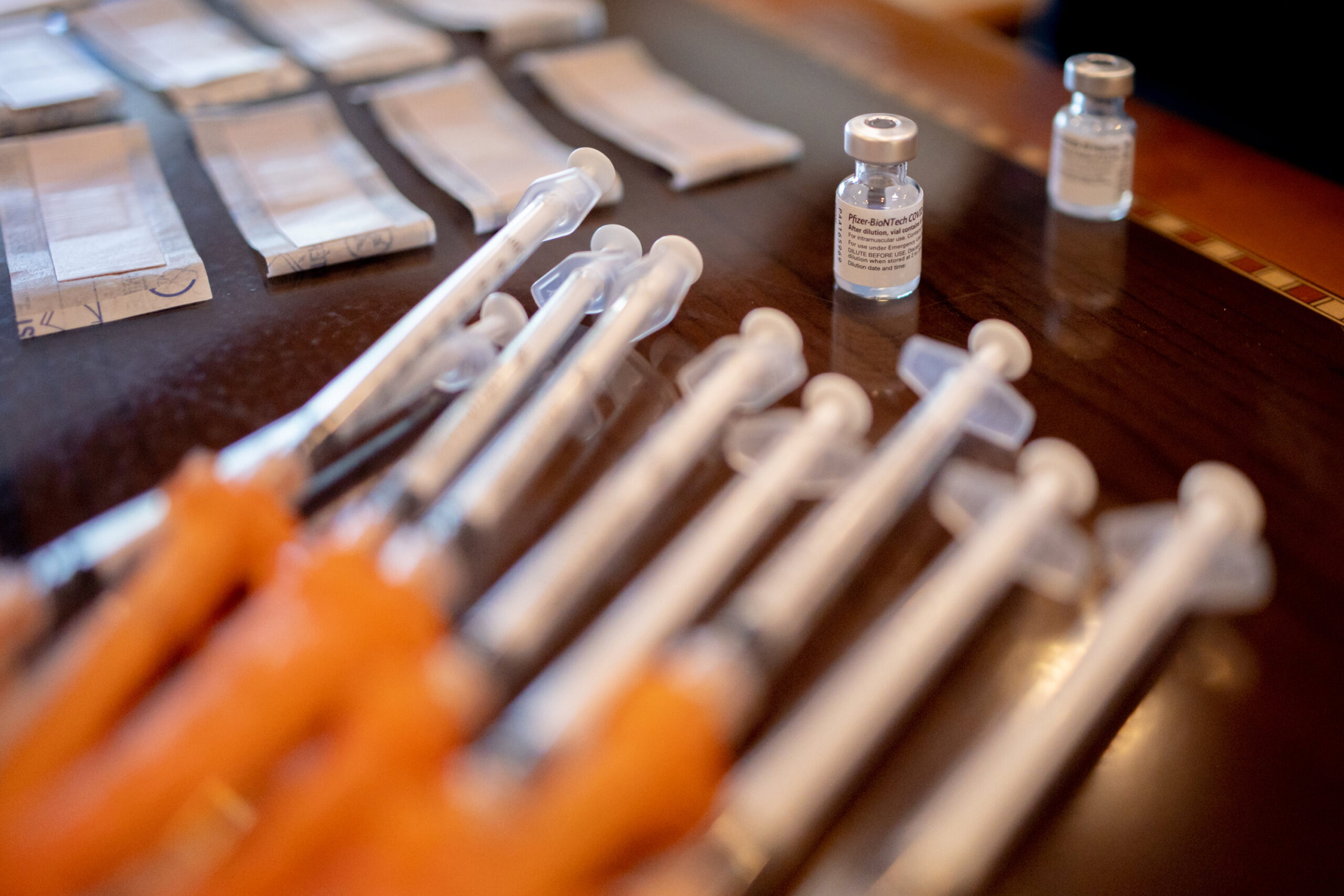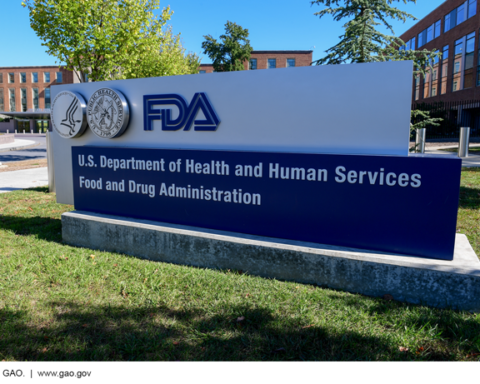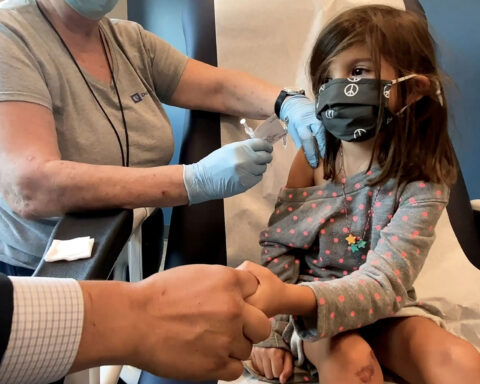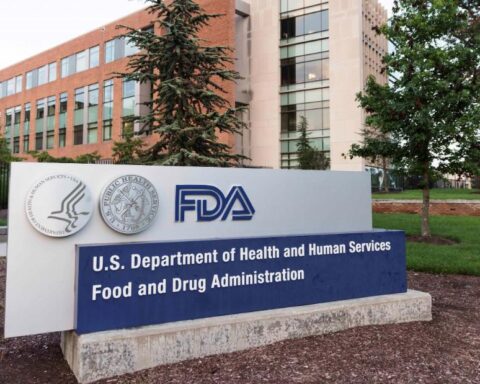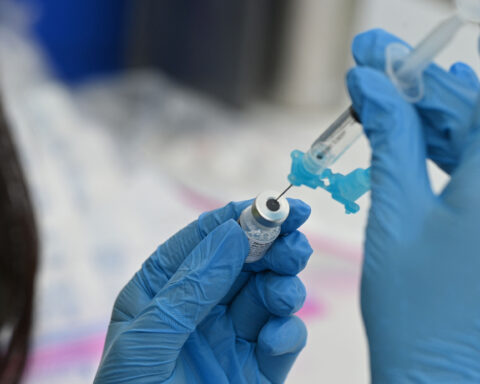The US Food and Drug Administration said Wednesday it has called a meeting of its vaccine advisers for September 17 to discuss booster doses of coronavirus vaccine.
That’s three days before the September 20 target date to start offering booster doses announced by the White House last month.
“The administration recently announced a plan to prepare for additional COVID-19 vaccine doses, or ‘boosters,’ this fall, and a key part of that plan is FDA completing an independent evaluation and determination of the safety and effectiveness of these additional vaccine doses,” Dr. Peter Marks, who heads FDA’s vaccine division, said in a statement.
Pfizer/BioNTech applied to FDA to approve booster doses of its vaccine last month. Moderna applied Wednesday.
“The process for authorizing or approving the use of a booster dose of a COVID-19 vaccine involves each vaccine manufacturer submitting data pertaining to safety and effectiveness to the agency to support this use,” added Marks, who leads FDA’s Center for Biologics Evaluation and Research (CBER).
“The FDA is evaluating data submitted by Pfizer-BioNTech in a supplemental Biologics License Application for its COVID-19 vaccine and will discuss it with the agency’s advisory committee to inform our decision-making,” added Marks. “Should the data received from other manufacturers raise unique questions that would benefit from the committee’s input, the agency intends to consider additional public discussions.”
The FDA fully approved Pfizer’s vaccine last month.
Moments before the FDA released the announcement, vaccine maker Moderna said it had submitted an application to offer booster doses.
“We are pleased to initiate the submission process for our booster candidate at the 50 microgram dose with the FDA. Our submission is supported by data generated with the 50 microgram dose of our COVID-19 vaccine, which shows robust antibody responses against the Delta variant,” Moderna CEO Stéphane Bancel said in a statement.
That’s a half dose — Moderna’s vaccine provides 100 micrograms in each dose for initial vaccinations.
The company used data from a Phase 2 study offering a booster to 344 interested participants six months after their second dose.
“Neutralizing antibody titers had waned significantly prior to boosting at approximately six months,” the company said. The booster brought antibody levels to above what they had set as a benchmark for emergency use authorization.
“After a third dose, a similar level of neutralizing titers was achieved across age groups, notably in older adults (ages 65 and above),” the company said.
“The safety profile following dose 3 was similar to that observed previously for dose 2 of mRNA-1273. These data will be submitted to a peer-reviewed publication.”
Just a half dose of the Moderna shot produced abundant antibodies against variants of concern, including Beta (B.1.351) Gamma (P.1) and Delta (B.1.617.2), the company said.
The issue of whether most Americans need boosters yet has been controversial. On Tuesday, the FDA announced two senior staffers at CBER were stepping down, and some former FDA staffers speculated it was because they were fed up with White House messaging that has often appeared to preempt the agency’s decisions.
Dr. Anthony Fauci, director of the National Institute of Allergy and Infectious Diseases and a senior White House adviser, denied this.
“There is no pressure on them to do anything other than the job that they do so well,” Fauci told CNN’s Wolf Blitzer on Wednesday.
The Pfizer and Moderna vaccines are given as two doses, so a booster would be a third dose.
“A transparent, thorough and objective review of the data by the FDA is critical so that the medical community and the public continue to have confidence in the safety and effectiveness of COVID-19 vaccines. The FDA will review the supplemental application as expeditiously as possible, while still doing so in a thorough and science-based manner,” Marks said in the FDA statement.
The FDA’s Vaccines and Related Biological Products Advisory Committee, or VRBPAC, meets to advise the agency, which usually follows the panel’s recommendations.
“In general, advisory committees include a Chair, members with scientific, medical and public health expertise, and a consumer and industry representative. Additional members with specific expertise may be added for individual meetings as needed,” the FDA said.
The meeting will be livestreamed.
Earlier this week, the US Centers for Disease Control and Prevention’s Advisory Committee on Immunization Practices met to discuss boosters and heard that so far, there’s not a lot of evidence that most people need boosters. The FDA and CDC have endorsed boosters for certain immunocompromised people, but not the general public.
But several recent studies have indicated that people get a big jump in protection from booster shots. A team at UC San Diego Health reported Wednesday they were seeing more infections among fully vaccinated health care workers.
That definitely means people should resume wearing masks and taking other precautions, they said, even if they are vaccinated. And it could be an argument for boosters, they wrote in a letter to the New England Journal of Medicine.

